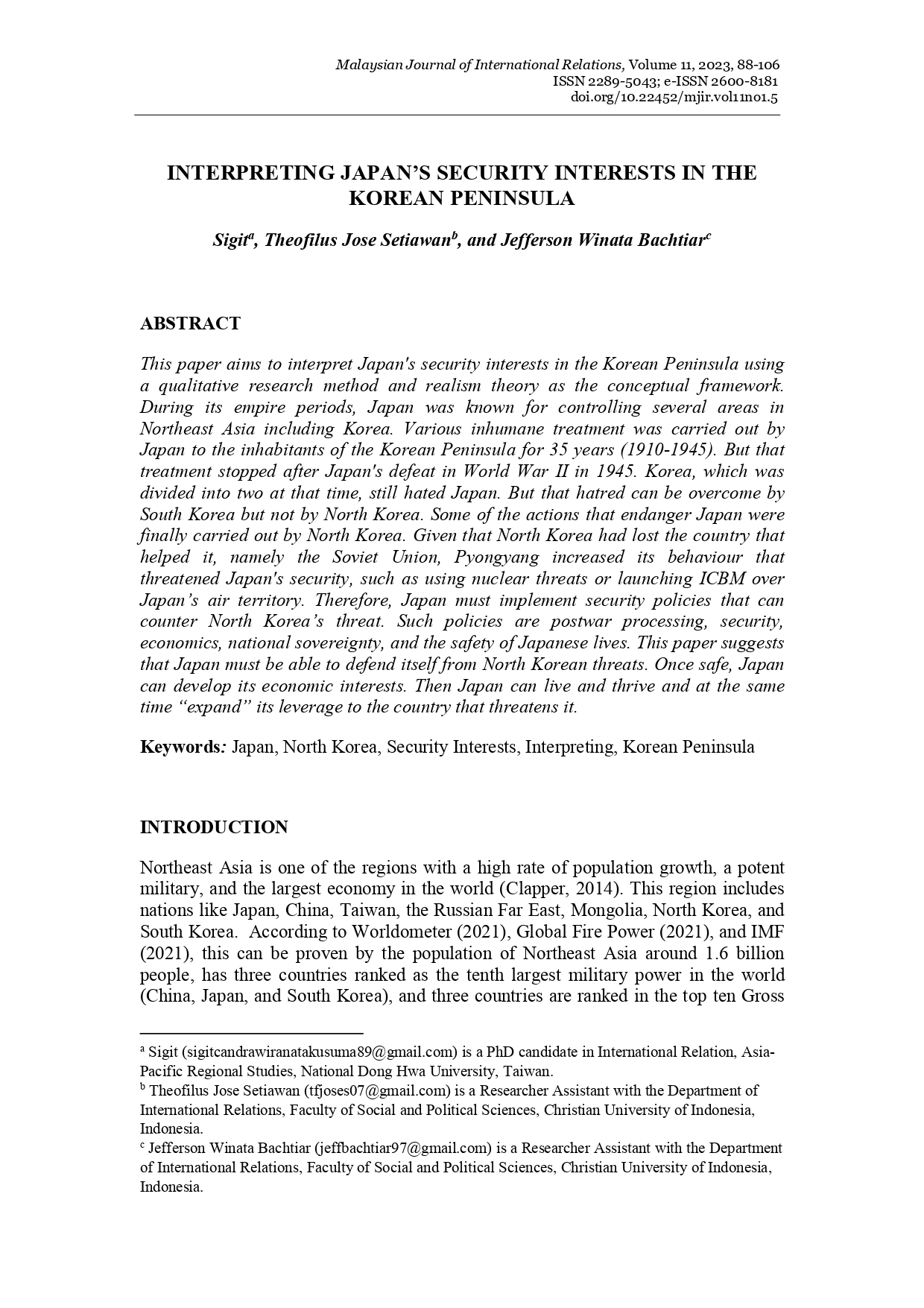Interpreting Japan’s Security Interests in the Korean Peninsula
Main Article Content
Abstract
This paper aims to interpret Japan's security interests in the Korean Peninsula using a qualitative research method and realism theory as the conceptual framework. During its empire periods, Japan was known for controlling several areas in Northeast Asia including Korea. Various inhumane treatment was carried out by Japan to the inhabitants of the Korean Peninsula for 35 years (1910-1945). But that treatment stopped after Japan's defeat in World War II in 1945. Korea, which was divided into two at that time, still hated Japan. But that hatred can be overcome by South Korea but not by North Korea. Some of the actions that endanger Japan were finally carried out by North Korea. Given that North Korea had lost the country that helped it, namely the Soviet Union, Pyongyang increased its behaviour that threatened Japan's security, such as using nuclear threats or launching ICBM over Japan’s air territory. Therefore, Japan must implement security policies that can counter North Korea’s threat. Such policies are postwar processing, security, economics, national sovereignty, and the safety of Japanese lives. This paper suggests that Japan must be able to defend itself from North Korean threats. Once safe, Japan can develop its economic interests. Then Japan can live and thrive and at the same time “expand” its leverage to the country that threatens it.
